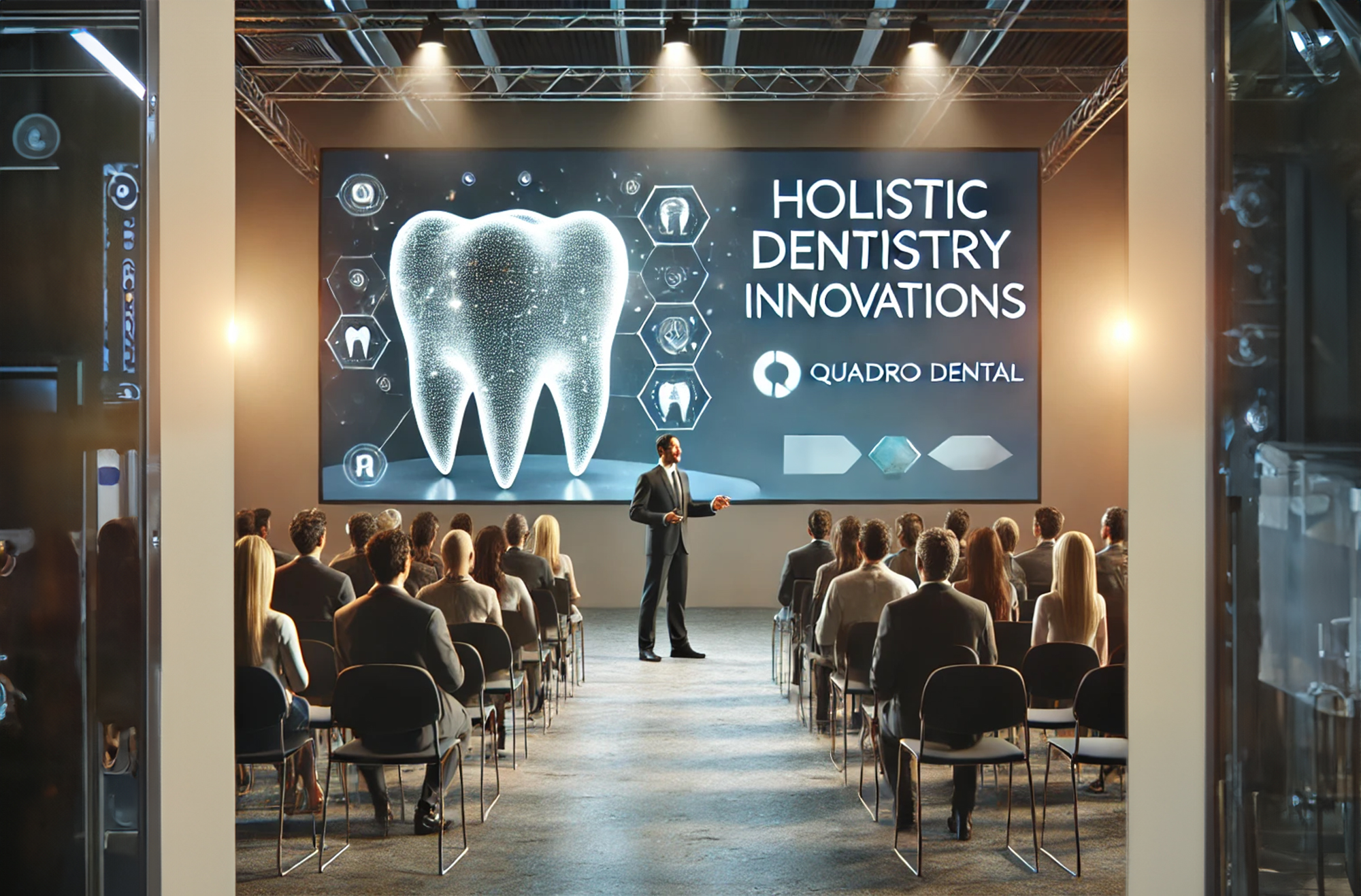In recent years, there has been a growing trend in the field of dentistry that goes beyond traditional dental care. It’s also known as biological or integrative dentistry, focuses on the interconnection between oral health and overall well-being. This approach to dentistry considers the patient as a whole, taking into account not just the teeth and gums, but also the impact of dental treatments on the entire body. In this blog post, we will explore the principles of holistic dentistry, its benefits, and how it differs from conventional dental practices.
Introduce
Holistic dentistry is based on the philosophy that oral health is closely linked to the overall health of the body. It emphasizes the use of biocompatible materials, minimally invasive procedures, and natural methods to promote healing and prevent disease. Unlike traditional dentistry, which often focuses solely on treating dental problems as they arise, holistic dentistry aims to prevent issues by addressing their root causes and considering the patient’s lifestyle, diet, and emotional well-being.
Key principles
- Biocompatible Materials:
- Holistic dentists prioritize the use of materials that are non-toxic and biocompatible with the human body. This includes avoiding the use of mercury-containing amalgam fillings, which have been a subject of concern due to potential health risks. Instead, they opt for safer alternatives such as composite resins and ceramic fillings.
- Minimally Invasive Techniques:
- Minimally invasive dentistry is a cornerstone of holistic practices. This approach involves preserving as much of the natural tooth structure as possible and using conservative methods to treat dental issues. Techniques such as ozone therapy, laser dentistry, and air abrasion are often employed to minimize discomfort and promote faster healing.
- Focus on Prevention:
- Prevention is a key aspect of holistic dentistry. Holistic dentists work closely with patients to develop personalized care plans that include dietary recommendations, oral hygiene practices, and lifestyle changes to prevent dental problems before they occur. This proactive approach helps maintain oral health while reducing the need for invasive treatments.
- Connection Between Oral and Systemic Health:
- Holistic dentists recognize the strong connection between oral health and systemic health. For example, conditions such as gum disease have been linked to cardiovascular disease, diabetes, and other systemic issues. By addressing oral health problems early and understanding their impact on the body, holistic dentists aim to improve overall health outcomes for their patients.
- Natural and Alternative Therapies:
- In addition to conventional dental treatments, holistic dentistry may incorporate natural and alternative therapies. This can include the use of herbal remedies, homeopathy, and acupuncture to support healing and reduce anxiety during dental procedures. Holistic dentists may also offer guidance on detoxification and the use of supplements to enhance oral and overall health.
The Benefits of Holistic Dentistry
- Personalized Care: Holistic dentistry is highly individualized, with a focus on the specific needs and health goals of each patient. This personalized approach ensures that treatments are tailored to promote overall well-being, not just oral health.
- Reduction of Toxic Exposure: By using biocompatible materials and avoiding harmful substances like mercury, holistic dentistry minimizes the risk of toxic exposure, which can have long-term health implications.
- Emphasis on Prevention: The proactive nature of holistic dentistry means that patients are more likely to avoid serious dental problems in the future. This not only preserves oral health but also contributes to better overall health.
- Integration of Body and Mind: Holistic dentistry recognizes the importance of mental and emotional well-being in dental care. By addressing stress, anxiety, and emotional factors, holistic dentists help create a more positive and healing environment for their patients.
- Support for Overall Health: By understanding and addressing the connections between oral health and systemic conditions, holistic dentistry supports the overall health of patients, potentially reducing the risk of chronic diseases.
For a deeper dive check out our dental health blog.
Holistic Dentistry vs. Traditional Dentistry
While both holistic and traditional dentistry share the goal of maintaining and improving oral health, their approaches can differ significantly:
- Material Choices: Traditional dentistry often uses materials like amalgam for fillings, which contain mercury. Holistic dentists avoid such materials in favor of safer, non-toxic alternatives.
- Treatment Approaches: Traditional dentistry tends to focus on treating symptoms and fixing problems as they arise. Holistic dentistry, on the other hand, emphasizes prevention and seeks to address the root causes of dental issues.
- Patient Perspective: Traditional dentistry typically focuses on the mouth, teeth, and gums, while holistic dentistry considers the patient’s overall health, including physical, emotional, and spiritual well-being.
- Therapeutic Options: Holistic dentists may incorporate alternative therapies and natural remedies alongside conventional treatments, offering a broader range of options to support patient health.
Conclusion
Holistic dentistry offers a comprehensive approach to dental care that goes beyond the traditional focus on teeth and gums. By considering the whole person and the connections between oral health and overall well-being, holistic dentistry aims to promote long-term health and vitality. At Quadro Dental, we are dedicated to providing holistic dental care that supports your overall health. Our commitment to biocompatible materials, minimally invasive techniques, and personalized care ensures that you receive the best possible treatment for both your oral and overall health. Explore the benefits of holistic dentistry and experience the difference it can make in your life.
External Sources;
